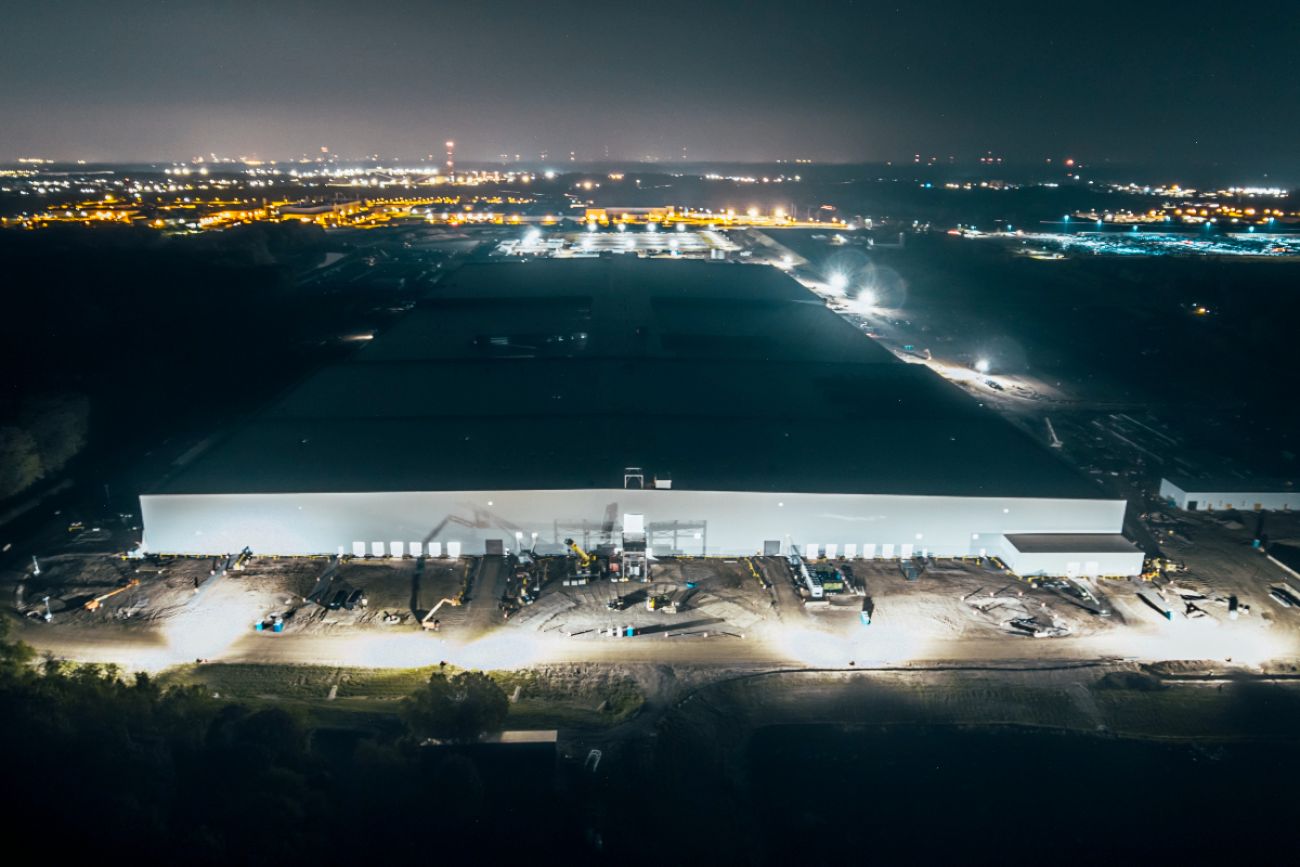Michigan lawmakers eye changes to corporate incentives after Bridge report

- Public records show Michigan has spent $1 billion on EV battery plants that have created 200 jobs
- Five companies promised to create 16,000 jobs with the subsidies, but projects are delayed
- Legislators are debating wholesale reforms to corporate incentives
Some lawmakers are questioning Michigan’s corporate incentive strategy following a Bridge Michigan investigation that found the state has already spent $1 billion on battery plants that have only created 200 jobs.
The report, published Wednesday, “confirms that we’ve been spending this money, and it hasn’t resulted in what was promised or what people wanted it to,” said Rep. Dylan Wegela, D-Garden City, a critic of tax incentives.
“It shows some good reasons to dial back the funding and maybe even eliminate it,” Wegela said.
Senate Minority Leader Aric Nesbitt, R-Porter Township, said Bridge’s report demonstrated that “once again, Michigan taxpayers get stuck with the bill,” Nesbitt said.
Bridge’s investigation into Michigan’s return on investment on the state’s largest EV manufacturing incentives since 2022 found:
- Gov. Gretchen Whitmer announced that five companies would invest $16 billion total and create 12,000 jobs. But all projects are behind schedule and two are downsized, reducing best-case job expectations by at least 13%.
- The plants have created about 200 jobs so far, with automakers still reducing their expected EV production and needed new capacity.
- Michigan changed its rules and allowed companies to receive subsidies without creating jobs.
- Unlike other incentives, Michigan’s bankrolling of EV plants would be harder to claw bank if companies fall short of investment of job tallies.
The spending so far is half of the $2 billion-plus Michigan has pledged to five companies: Ford Motor Co., Gotion Inc., LG Energy Solution and Our Next Energy for battery factories, and General Motors Corp. for a battery factory and expanded EV production in Oakland County.
Here is a primer about the issue:
Both parties are scrutinizing large-scale incentives
The $1 billion spent on EV-related megasites is raising questions among lawmakers about the effectiveness of Whitmer’s signature economic development program, the Strategic Outreach and Attraction Reserve (SOAR) fund.
It has allocated $3 billion toward big projects since it was formed in late 2021.
RELATED STORIES:
- Where mega battery, EV projects stand after $1 billion in Michigan subsidies
- Corporate subsidies cost Michigan $335M; 40% of deals create low-paying jobs
- Michigan lawmakers move to reform corporate subsidies; hurdles remain
At the time, Michigan lawmakers worried they could lose the auto industry as it transitions to electric vehicles. Now, SOAR is set to wind down next year, and policymakers weigh what’s next.
Michigan bet big on EVs to ensure the state is a leader in the auto industry, but sales of the cars continue to underwhelm because of high prices and anxiety over too-few public charging options.
The results shown in Bridge’s report “have been disappointing,” former U.S. Rep. Pete Hoekstra, chair of the Michigan Republican Party.
Whitmer’s administration did not comment on the report Thursday, but the spokesperson for the agency that doles out the incentives defended the investment.
“There is no doubt these investments are valuable to the state,” Otie McKinley of the Michigan Economic Development Corporation told Bridge on Wednesday.
“That is why we supported (the funding) efforts,” he said, “and why we continue to look forward to seeing these plants operational and the communities in which they reside thriving.”
Negotiations continue about economic development
Debate about Michigan’s best strategy for economic development continues in the Legislature. This week, House Democrats advanced a $6 billion plan that would fund both businesses and communities.
That proposal — widely supported by business groups — calls for $2.5 billion to be devoted to SOAR over the coming decade, along with $2 billion for transit and $1.5 billion for housing and community initiatives.
But the party only has a two-vote majority in the full House, requiring a unanimous vote or Republican support to pass a bill.
On Thursday, two Democrats released their own economic development plan, cutting the SOAR allotment to $100 million per year.
“We stand firm in our beliefs that corporate tax breaks and handouts do not work, which unfortunately, is not the current mindset held by the majority of our colleagues in Lansing,” said Wegela and co-sponsor Rep. Emily Dievendorf, D-Lansing, in a statement.
Their amendments would shift $150 million per year to a housing fund, with directives to prioritize public housing rehabilitation.
“Our goal is to protect some of this money and … keep as much money in public spaces as possible,” Wegela told Bridge on Thursday.
Part of the plan is to increase the corporate income tax by 1%, Wegela said.
“We should be raising taxes on corporations, not giving them handouts,” he said.
While Democrats negotiate their plan, House Republicans also propose reforms, said Minority Leader Rep. Matt Hall, R-Richland Township on Wednesday.
The goal, he said, is “diversifying investments to support industries other than EV battery plants and implementing real accountability measures that will increase oversight and transparency.”
The EV market is volatile
The global auto industry is “changing by the day,” said Glenn Stevens, executive director of MichAuto, a statewide automotive advocacy association.
Bridge’s investigation reflects those dynamics, Stevens said.
The spending on massive EV projects was initiated by the incentives approved by bipartisan legislators, Stevens said, at a time when concerns about EVs focused on price, range anxiety and infrastructure.
Today, that’s snowballed to include global competition — including tariffs on Chinese goods set by the U.S. and European Union — along with shifting consumer preferences, energy costs, energy availability and political platforms for and against the vehicles.
With sales not meeting forecasts, Michigan’s competitor states have had massive factories put on hold this year. That includes Georgia, a rival for electrification deals, which recently saw Rivian pause its $5 billion truck plant there.
Michigan has spent $1 billion across six different initiatives from five companies, but the state is “fortunate that we didn’t get too far out there … with monumental projects that are on hold now,” Stevens said.
“We’d be really questioning ourselves if we were dealing with that right now,” Stevens said. “I think we made smart decisions with companies that are growing (the state’s) battery supply chain.”
This week, GM announced that it expected to make up to 250,000 EVs this year, down from a top estimate of 300,000. The company previously estimated it would make 400,000.
“EVs are still happening… just at a very different pace than people thought not that long ago,” Stevens said.
However, without what Stevens called the “EV gold rush” of the last few years, Michigan’s economic development incentives still were insufficient for the state to gain significant automotive jobs, he said.
SOAR, Stevens said, altered that. And the conversations about what’s next for incentives raise the possibility to retain business attraction awards, along with community-driven investment and funding more innovation.
“That gives us a fighting chance for true growth,” Stevens said.
Hoeksta said he does not support a continuation of incentives without changes to accountability and transparency, along with more legislative control over the largest awards. Today, a legislative committee approves funding allocations, but SOAR awards do not face a full vote of the Legislature.
“The biggest thing that Michigan can do is we can just make ourselves, structurally, a great place to do business,” Hoekstra said, “and not spend so much on incentives.”
Business Watch
Covering the intersection of business and policy, and informing Michigan employers and workers on the long road back from coronavirus.
- About Business Watch
- Subscribe
- Share tips and questions with Bridge Business Editor Paula Gardner
Thanks to our Business Watch sponsors.
Support Bridge's nonprofit civic journalism. Donate today.
See what new members are saying about why they donated to Bridge Michigan:
- “In order for this information to be accurate and unbiased it must be underwritten by its readers, not by special interests.” - Larry S.
- “Not many other media sources report on the topics Bridge does.” - Susan B.
- “Your journalism is outstanding and rare these days.” - Mark S.
If you want to ensure the future of nonpartisan, nonprofit Michigan journalism, please become a member today. You, too, will be asked why you donated and maybe we'll feature your quote next time!




